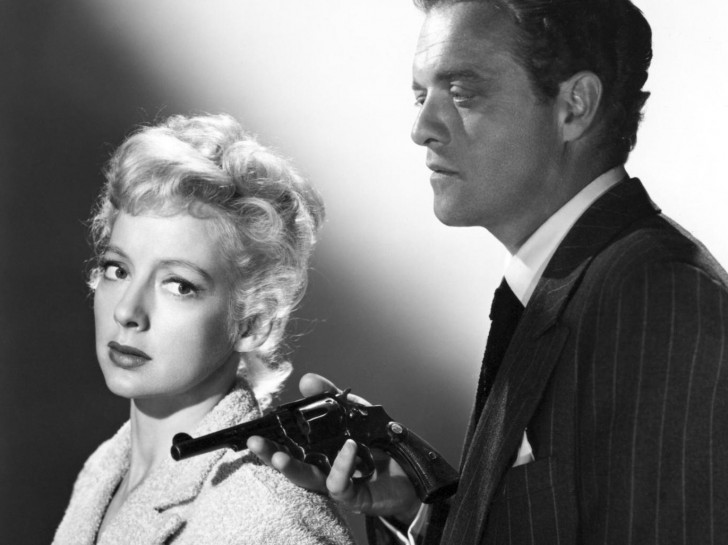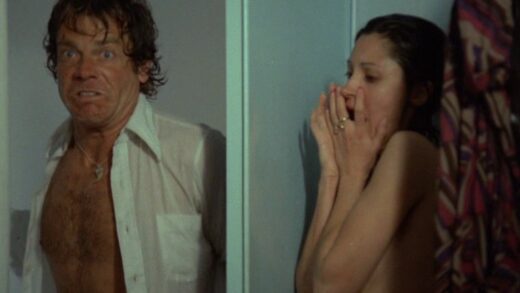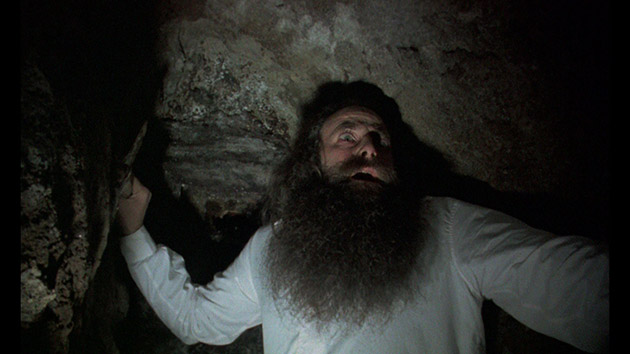The Prowler (1951)
![]()
The Prowler (1951) Directed by Joseph Losey
Joseph Losey’s nasty, cheap rip-off of Double Indemnity is more mean-spirited, less sardonic than Billy Wilder’s masterpiece; it trades venomous femme fatale sensuality for macho sociopathy, ditches capitalist cynicism and misanthropic harshness, and embraces leftist subversiveness. Joseph Losey’s The Prowler is political praxis couched in a hard-boiled thriller about the envious, unethical cop Webb Garwood (Van Heflin), a socially bitter, smarmy, uneducated petulant who initiates an affair with a well-to-do married woman, Susan (Evelyn Keyes), after she calls the police about seeing a prowler in the vicinity of her extravagant residence.
The illicit flirtation appears as ardent as an adolescent love affair; it is risqué but harmless as long as the encounters remain surreptitious. Nevertheless, Losey’s noir is implacable in its philosophy of sociopolitical tragedy, so danger and bad omens are looming in the subversive ideals embodied in Webb and Susan’s toxic relationship. The disturbing script – clandestinely written by Hollywood blacklist Dalton Trumbo – disrupts the cosmetic comfort of the bourgeois domesticity and with antagonistic social anger – epitomized by Webb, victim of his own vices, materialistic ambitions – corrupts the prudery of 1950’s American conservatism – epitomized by Susan, victim of her conceited social status and self-righteous hypocrisy – finally, the troubled romance leads to the sordid murder of Susan’s husband. There’s nothing fun in Trumbo’s gritty, angry prose; it’s a serious, stone-cold story that mimics Webb’s creepy demeanor – Van Heflin is extraordinary as Susan’s vile, manipulative sleazeball.
One of those post-war noirs where the amount of evil cannot be gauged, yet what makes it a visceral and sensational piece of psychological realism is not exactly that, but rather its Marxist enlightenment and social critique of the seedy events, which are the product of a clear, scary mirage of McCarthyite paranoia. Van Heflin’s Webb Garwood starts out as a cop looking for a marauding intruder, then he becomes one, and eventually turns into the being he envied most. The tragedy is that his psyche ends up so damaged and his morals in such a murderously ambivalent state that his greatest ambition results in his damnation.






